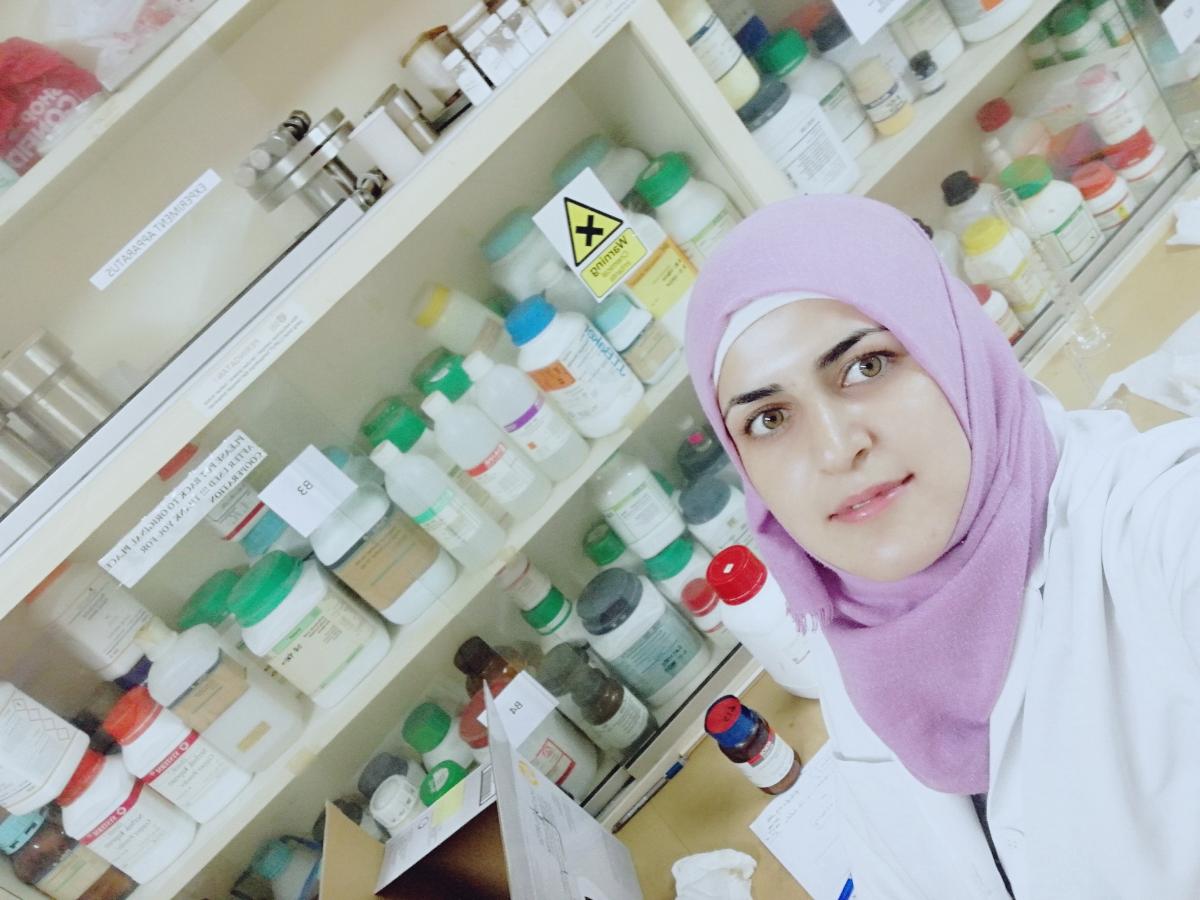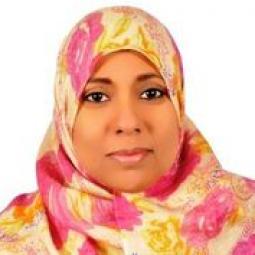
A PhD fellow from Syria is developing ultrasensitive sensors to diagnose dopamine deficiencies.
After my postdoc, I will return to Syria and work to achieve my big dream, which is to establish a research center.
Faten Kamal Eddin is a 2017 OWSD PhD fellow from Syria, currently completing a full-time fellowship at Universiti Putra Malaysia (UPM), where she is using nanomaterials to improve the sensitivity of a sensor to detect and diagnose dopamine deficiences.
How did you learn about the OWSD fellowship? How would you say it has impacted your career?
I learned about the OWSD fellowship through the OWSD website in 2017, and applied for the full-time fellowship. I can't describe my happiness when I received an email from OWSD telling me that my application had been selected for an award in the same year.
Through the support I received during this fellowship, I have worked on developing my research skills, making effective communication with many researchers, writing scientific papers, and publishing in Q1 and Q2 international journals [first and second quartiles of scientific journals, by impact factor]. During my PhD, I published the papers:
- "Recent Advances in Electrochemical and Optical Sensing of Dopamine", in Sensors (with Yap Wing Fen)
- "The Principle of Nanomaterials Based Surface Plasmon Resonance Biosensors and Its Potential for Dopamine Detection", in Molecules (with Yap Wing Fen)
- "Femtomolar detection of dopamine using surface plasmon resonance sensor based on nanomaterials" in Spectrochimica Acta Part A: Molecular and Biomolecular Spectroscopy.
I also received the Bronze Award for “The Potential of Graphene Oxide Based Surface Plasmon Resonance Biosensor for Dopamine Detection” at the Virtual Materials Technology Challenge 4.0 (v-MTC 2020) at UPM.
All of my focus is on publishing more research papers before I finish my PhD, which will help me to get the postdoc opportunity that I want. All thanks and gratitude to OWSD.
 What are you researching? What first made you interested in this subject, or how did you decide to focus on this?
What are you researching? What first made you interested in this subject, or how did you decide to focus on this?
My research interest is in the development of a surface plasmon resonance (SPR) optical sensor by incorporation of nanomaterials within the sensor chip, to enhance its sensitivity and selectivity. This nanotechnology-based SPR sensor represents a new possibility for the rapid, easy, low-cost and reliable diagnosis of dopamine (DA) deficiency.
My interest in this subject is guided by the fact that several neurological diseases, including Parkinson’s disease (PD), Alzheimer’s disease, schizophrenia, and depression, are associated with DA concentrations in various biological fluids. So the design and development of diagnostic tools for DA detection is of considerable clinical and pharmacological importance.
The conventional methods for DA monitoring such as high-performance liquid chromatography, mass spectroscopy, capillary electrophoresis, chemiluminescence and electrochemistry, have many drawbacks, and most of them do not meet the growing requirements. Real-time and rapid detection of DA is not available using these techniques. This, in turn, impairs the possibility of the loco-regional treatment of neurodegenerative diseases.
It is of interest to design and develop simple and more cost-effective practical sensors which exhibit high sensitivity and selectivity, good reproducibility, and stability, with the ability to rapidly detect DA. The SPR technique is believed to have the capability to overcome all the drawbacks suffered by the other sensors. In my project, the development of an SPR optical sensor with improved sensitivity is proposed as a promising technique for ultrasensitive detection of DA.
Has anything surprised you about your research experience?
Compared to the conventional diagnostic tools, SPR biosensors have multiple advantages such as easy preparation, no requirement of labeling, real-time detection capability, cost- effectiveness, and high specificity and sensitivity. However, for the label-free detection of very low concentrations of DA, its sensitivity is not enough. The used nanomaterials were promising candidates and have demonstrated their appropriateness in the biosensing field. From my research experience I found that the modification of the sensor chip with the functional nanomaterials significantly enhanced the sensor's performance, increasing its sensitivity towards DA. The obtained results from my project demonstrated for the first time that the developed sensor has the potential to monitor and determine the angular shift of the SPR dip when detecting very low concentrations of DA down to 1 fM.
How has the COVID-19 pandemic impacted your research?
The challenges I face in my studies started with the COVID-19 pandemic. My project requires me to be present for a long time in many laboratories to conduct the experimental work. Since the start of the movement control order in Malaysia in March 2020, I cannot go to the laboratories, and therefore I am not sure if I will finish my study on time. My supervisor did his best to get permission for me to enter the labs, however I got permission to enter only the applied optics lab for few days and could not complete the work needed to obtain good results and do sample characterization. Frankly, this issue puts pressure on me, but I am doing my best to accomplish everything I can do regarding the thesis and the theoretical component.
What are your plans for the future (after you receive your PhD)?
Before I receive my PhD, I am actually planning to continue in a postdoctoral position. I hope that I can work as a lecturer and do research at the same time. Due to the current situation in Syria, I cannot do my postdoc there. So, in the next step I will look for and apply for a suitable postdoc position. At the same time, I will certainly do my best to support and assist any woman to complete her study and achieve her ambition. After that, I will return to my country and work to achieve my big dream, which is to establish a research center. I hope to receive support to achieve this and provide an opportunity for researchers, especially physicists, to conduct their experiments and publish their results. I wish that OWSD can launch a National Chapter in Syria in the future.










































